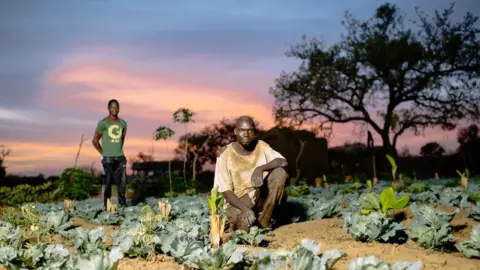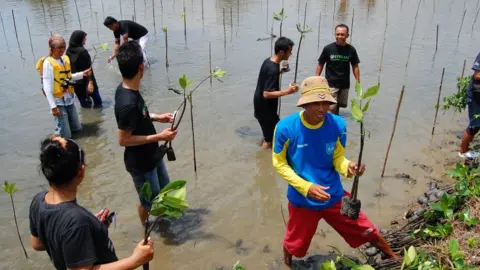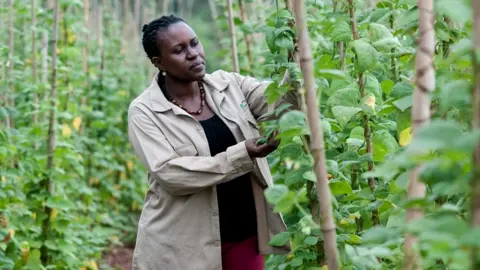Climate change: 'Invest $1.8 trillion to adapt'
 Ollivier Girard/CIFOR
Ollivier Girard/CIFORInvesting $1.8 trillion over the next decade - in measures to adapt to climate change - could produce net benefits worth more than $7 trillion.
This is according to a global cost-benefit analysis setting out five adaptation strategies.
The analysis was carried out by the Global Commission on Adaptation - a group of 34 leaders in politics, business and science.
They say the world urgently needs to be made more "climate change resilient".
The commission, led by former UN Secretary-General Ban Ki-moon, World Bank chief executive Kristalina Georgieva and Microsoft co-founder Bill Gates, argues that it is an urgent moral obligation of richer countries to invest in adaptation measures that will benefit the world.
 Jelajah Pangandaran
Jelajah PangandaranThe report says those most affected by climate change "did least to cause the problem - making adaptation a human imperative".
Its primary aim is to put climate change adaptation on to the political agenda around the world. And to do this, it sets out "concrete solutions" and an economic plan.
There are, it says, five things the world should invest in over the next decade:
- Warning systems: For the vulnerable island and coastal communities in particular, early warnings about storms, very high tides and other extreme weather can save lives. Better weather monitoring and a simple app for fishing communities in the Cook Islands, for example, allows them to plan according to the sea conditions
- Infrastructure: Building better roads, buildings and bridges to suit the changing climate. One project in New York City has set out to paint rooftops white - a heat-reflecting strategy to cool buildings and neighbourhoods
- Improving dry-land agriculture: Something as simple as helping farmers to switch to more drought-resistant varieties of coffee crop could protect livelihoods and prevent hunger
- Restoring and protecting mangroves: Underwater mangrove forests protect about 18 million people from coastal flooding, but they're being wiped out by development. Restoration projects could protect vulnerable communities from storms and boost fisheries' productivity
- Water: Protecting water supplies - and making sure that water's not being wasted - will be vital in a changing climate
Each of these investments, the commission says, would contribute to what they call a "triple dividend"- avoiding future losses, generating positive economic gains through innovation, and delivering social and environmental benefits. It is that dividend that the report has valued at $7.1tn (£5.7tn).
 Georgina Smith / CIAT
Georgina Smith / CIATCommenting on the report's findings, Mr Ban said climate change "doesn't respect borders".
"It's an international problem that can only be solved with co-operation and collaboration, across borders and worldwide. It is becoming increasingly clear that in many parts of the world, our climate has already changed and we need to adapt with it."
The report calls for "revolutions" in understanding, planning and finance - to "ensure that climate impacts, risks and solutions are factored into decision-making at all levels". Turning its recommendations into action will be the next endeavour; there will be a further announcement about adaptation plans at the UN Climate Summit in September.
